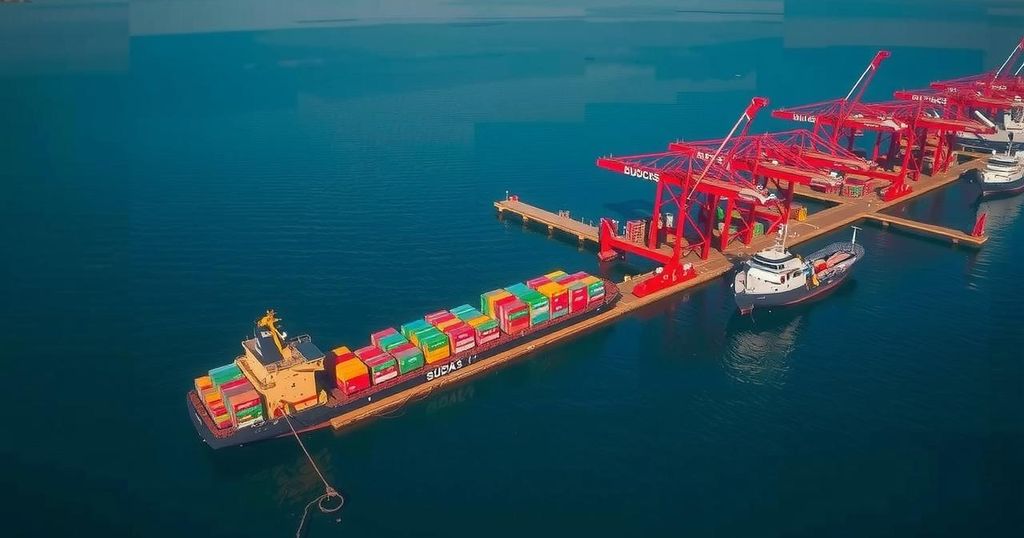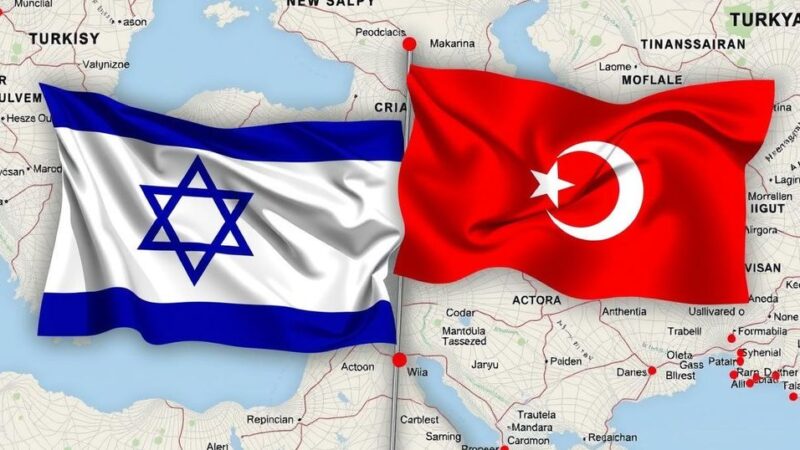Sudan has cancelled a port deal with the UAE as a form of protest against its alleged support for the Rapid Support Forces (RSF). Finance Minister Jibril Ibrahim emphasized that the deal was terminated to maintain national sovereignty. The cancellation has been welcomed by residents in eastern Sudan who wish to prioritize local over foreign investment. This decision also reflects broader political tensions in a country facing significant humanitarian crises.
Sudan has terminated a significant port agreement with the United Arab Emirates (UAE) in what appears to be a subtle protest against Abu Dhabi’s alleged backing of the Rapid Support Forces (RSF). Finance Minister Jibril Ibrahim announced the cancellation of the memorandum of understanding aimed at developing the Abu Amama port along the Red Sea coast, asserting that this decision was made to preserve Sudan’s sovereignty. At a press conference conducted in Port Sudan, Mr. Ibrahim emphasized, “Sudan will not cede ‘one centimetre’ of its coastline to the UAE.” This diplomatic move coincides with rising accusations regarding the UAE’s support for the RSF, which has been engaged in a brutal conflict with the Sudanese military since April 2023. The suspension of the Abu Amama agreement signals a strategic maneuver to mitigate UAE influence within Sudan, thereby asserting national autonomy amidst a backdrop of regional unrest. The historical context of Sudan-UAE relations reveals a mixture of cooperation and discord over recent times. A prior agreement in December 2022 had instituted a partnership involving the Sudanese government, UAE’s ports authority, and Sudanese businessman Osama Dawood, with the projected development value placed at $6 billion, aimed at establishing a free trade zone alongside agricultural ventures. The swift rejection of this deal indicates a vital reassessment of foreign partnerships in light of evolving political dynamics. Notably, the local populace in eastern Sudan has largely endorsed the cancellation, expressing hopes that the Sudanese government would redirect its focus towards enhancing local infrastructure and creating domestic employment opportunities. However, implementing this policy may prove challenging due to the fragmented political landscape within Sudan, where varying factions possess contrasting views on relationships with the UAE and other international actors. A delicate approach is essential for fostering national unity while addressing the differentiated interests of these political groups. At the same time, Sudan navigates a dire humanitarian crisis characterized by steep inflation, a plummeting currency, and skyrocketing prices, which have significantly degraded living standards for many citizens. According to humanitarian agencies, the conflict has resulted in over 18,000 fatalities, the displacement of 11 million individuals, and the exile of two million. The internally displaced persons face imminent famine and grave threats of violence. The repercussions of the port deal’s cancellation extend beyond Sudan’s own borders, affecting relations with regional powers such as Saudi Arabia and Egypt, both of which harbor interests in the Red Sea. This situation underscores the intricate power dynamics in the region, which compel Sudan to skillfully manage international influences and dynamics.
The context surrounding Sudan’s decision to cancel the port agreement with the UAE involves accusations of UAE support for the RSF, a paramilitary group engaged in a deadly conflict with Sudan’s military. This cancellation reflects Sudan’s attempts to assert self-determination in the face of external pressures, considered particularly significant in light of the deteriorating humanitarian situation within the country. Sudan’s relationship with the UAE has historically been complex, encompassing both cooperation and friction, particularly as regional tensions persist due to geopolitical shifts.
The cancellation of the Abu Amama port agreement reflects Sudan’s intent to assert its sovereignty in the face of alleged foreign interference, notably from the UAE. This decision reveals shifting attitudes within Sudan regarding foreign partnerships, particularly amid ongoing humanitarian challenges and intricate local political dynamics. The endorsement of this cancellation by local residents underscores a desire for investments that prioritize the local economy rather than large-scale foreign projects. As Sudan navigates its complex position within the regional geopolitical landscape, it faces the necessity of balancing these influences while addressing pressing domestic needs. This development holds implications for Sudan’s relations with other regional powers, emphasizing the need for nuanced diplomatic engagement moving forward.
Original Source: www.theeastafrican.co.ke







